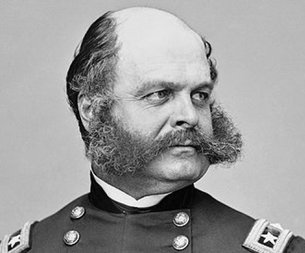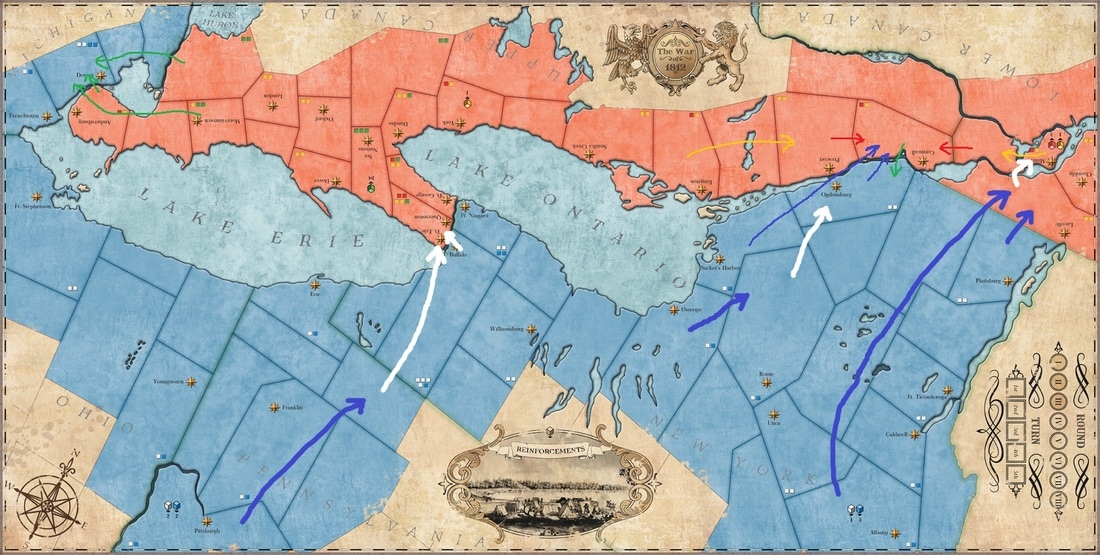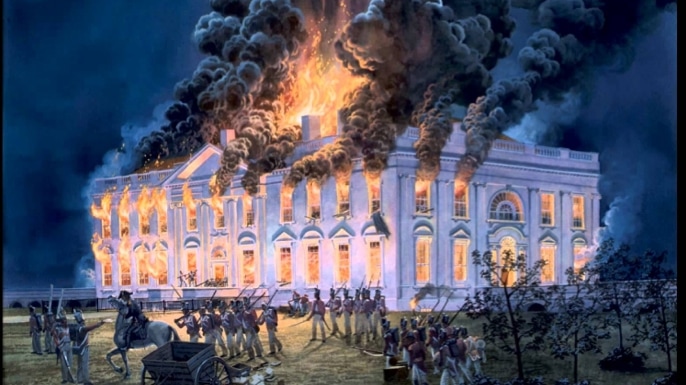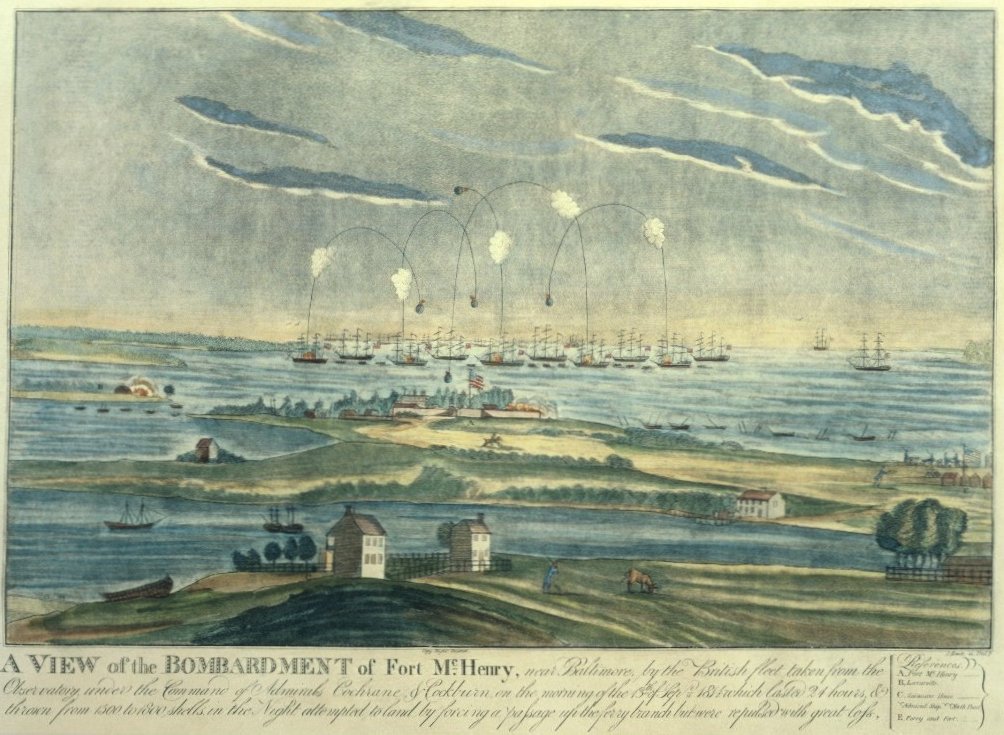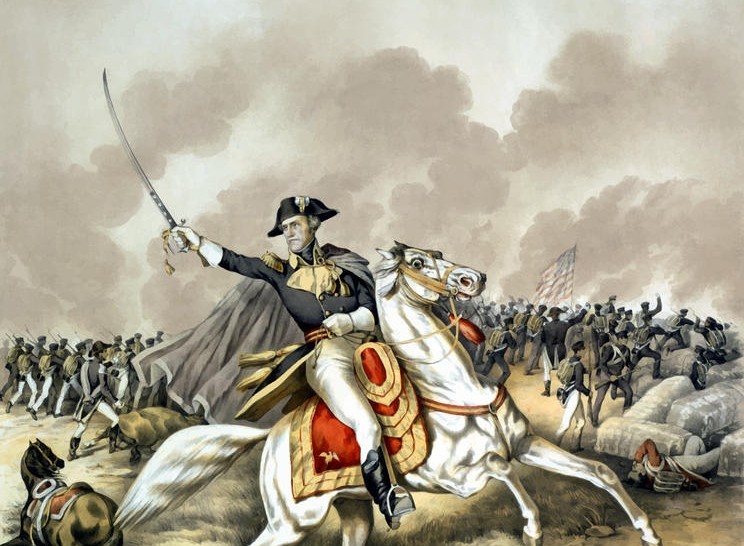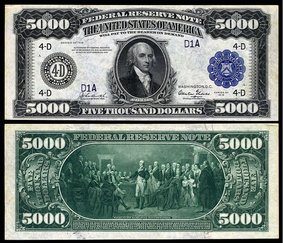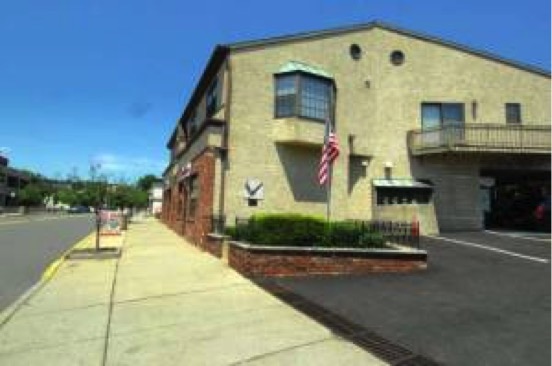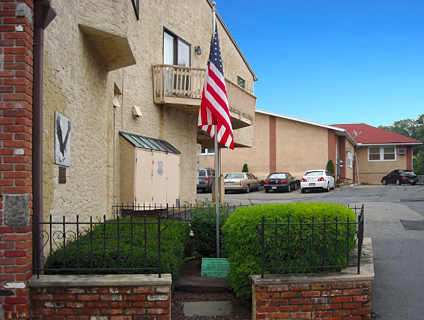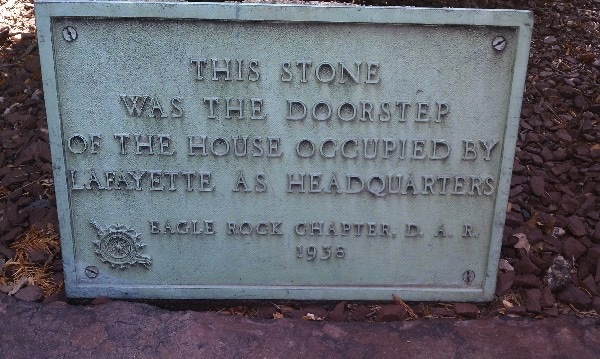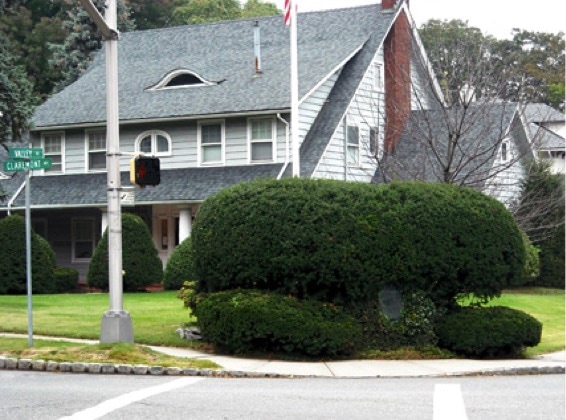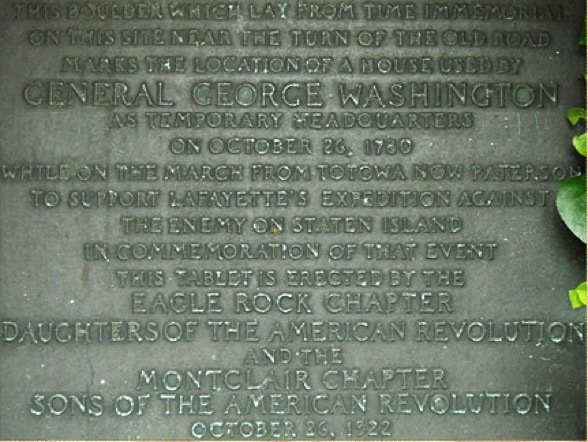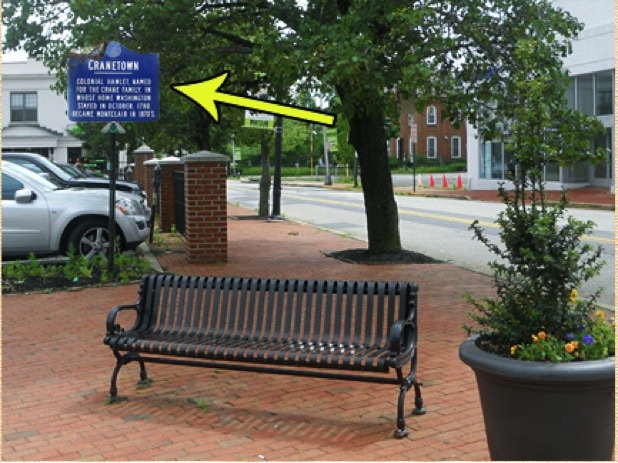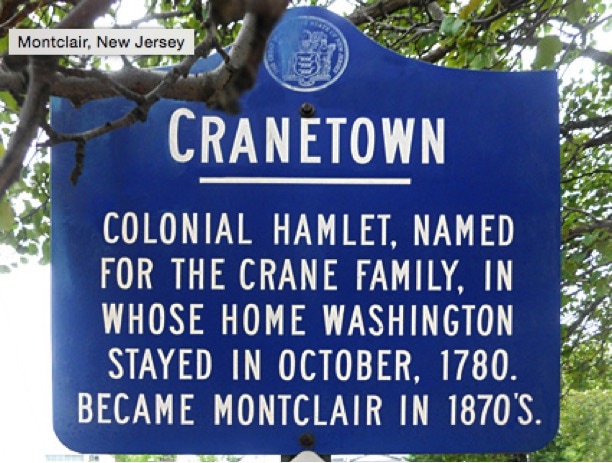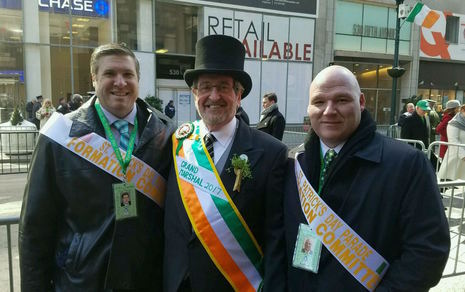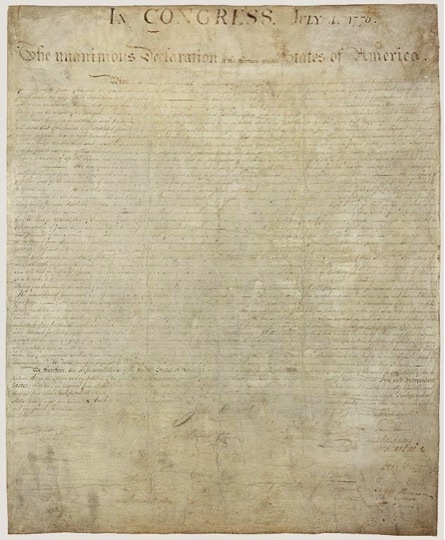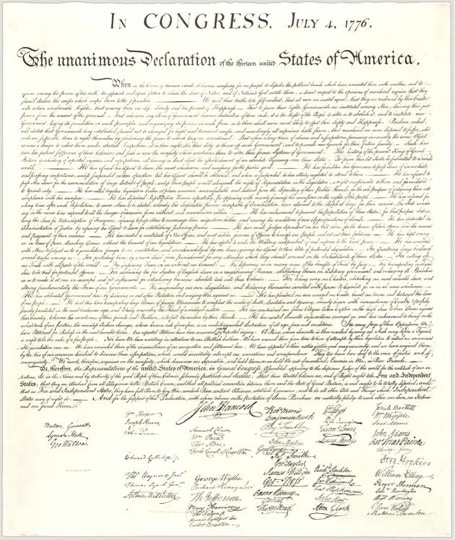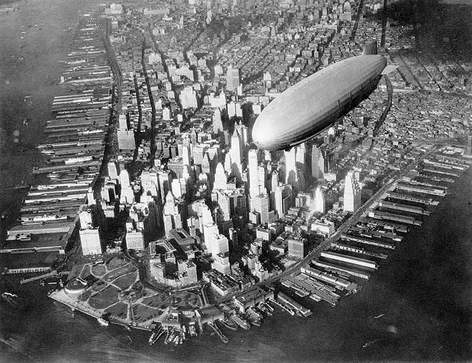Civil War - Then and Now
Detroit - Then and Now
Monday, June 12th - The war and the year are coming to an end. We heard about the Union loss at Chancellorsville and and win at Vicksburg. Onto to the Battle of Gettysburg (care of American Ride) and Lincoln's Gettysburg Address. Several students have been to the Gettysburg (to visit, not to fight) and are going to bring in pictures and info tomorrow. If you have something also, send it in!
Thursday, June 8th - We tried something different today... speed research. It was the first time I tried this and I had to make some adjustments along the way, but overall it was pretty interesting. The kids were given a question and using the Chromebooks, they raced to find the answers. We discussed their findings and kept on making connections. The question I found most interesting... How many presidents were in the military during the Civil War? 6 - Grant, Hayes, Garfield, Arthur, Harrison and McKinley.
In the end, the kids seemed to enjoy the process and learned something along the way. The best part for me... as soon as I asked the question, 25 kids started typing like crazy.
In the end, the kids seemed to enjoy the process and learned something along the way. The best part for me... as soon as I asked the question, 25 kids started typing like crazy.
Tuesday, June 6th - Missouri Compromise, Compromise of 1850, Kansas-Nebraska... all compromises that are dancing around the issue that needs to be solved... slavery.
Monday, June 5th - We are beginning our final unit for the year... the Civil War and Reconstruction. Yes, the Civil War is a topic that can be discussed for months or years. Libraries (and Amazon) are filled with books on the subject. We will cover it in eight days. The kids discussed what they already know and we laid down a good foundation.
Monday, May 15th - Review and Kahoot! was on tap for today. The kids seemed to be in pretty good shape and I think they will do fine on the assessment on Wednesday. Hopefully, they wrote down any questions they didn't know the answers to and go over them in the next day or two. The kids can bring home their notebooks and borrow text books.
Tuesday, May 9th - The Era of Good Feelings comes to end in end with President Monroe. The country has had a good run and is doing very well. Monroe even feels good enough about the country that he tells the rest of the world to stay out of the America's... no more colonization. He is also the last of the founding fathers to be president. After him comes Jackson who is nothing like the previous presidents...
He was not wealthy.
He has no great land holdings.
He was not from Virgina or Massachusetts.
He was not a lifelong politician.
He was not highly educated (not in school, but he did become a lawyer and judge).
He was a "common man".
The country is changing. Jackson believes that all citizens should participate in government (Jacksonian Democracy). Voting has been expanded to all white men (just land holding white men could vote before this). It seems like not much of a difference, but it is a step to getting the vote for all Americans. Jackson is also the president who signs and enforces the Indian Removal Act (all Native Americans East of the Mississippi must move to the Indian territory). The last phase is the forced removal of the Cherokee that are marched 800 miles. Cold, disease, and lack of food leads to the death of over 4,000 Cherokees. It becomes know as the "trail of tears".
He was not wealthy.
He has no great land holdings.
He was not from Virgina or Massachusetts.
He was not a lifelong politician.
He was not highly educated (not in school, but he did become a lawyer and judge).
He was a "common man".
The country is changing. Jackson believes that all citizens should participate in government (Jacksonian Democracy). Voting has been expanded to all white men (just land holding white men could vote before this). It seems like not much of a difference, but it is a step to getting the vote for all Americans. Jackson is also the president who signs and enforces the Indian Removal Act (all Native Americans East of the Mississippi must move to the Indian territory). The last phase is the forced removal of the Cherokee that are marched 800 miles. Cold, disease, and lack of food leads to the death of over 4,000 Cherokees. It becomes know as the "trail of tears".
Friday, May 5th - Monday, May 8th - "What goes around comes around" is fitting for our lesson today, because we burned the capital of Canada (York - later named Toronto) and the British came and burned Washington DC. That is correct, we are studying the War of 1812. We learned about some the causes (impressment of American merchants by the British on the high seas and forts in the west still occupied by British soldiers) and where the war was fought (the sea battles on the Great Lakes and our invasion of Canada, the burning of Washington DC, the most lopsided victory in American history that introduced the world to Andrew Jackson... Battle of New Orleans and the battle of Baltimore... Defense of Fort McHenry). This is a great link to the Star Spangled Banner (the big flag from Fort McHenry)... FLAG
Thursday, May 4th - So... Thomas Jefferson bought some land from the French... 828,000 square miles (Louisiana Territory), but it was like buying a house without ever seeing it. What is there? Is it fit for people to make it home? Lewis and Clark are giving the impossible task of mapping the new land and seeing if they can find a water route to the Pacific. 18 months after leaving St. Louis they arrive at the Pacific. It can be compared to our moon shot 160 years later. And the cost? Jefferson was looking to buy New Orleans for nor more than $10 million. France wanted $15 million... for the entire Louisiana Territory. Now, that's a deal!
Wednesday, May 3rd - George Washington decides that two terms as president is enough. He has done is duty and more for the country and asks only that we do not form parties. So what is the first these politicians do... form parties - Hamilton - Federalists and Jefferson - Democrat-Republics. I think we should have listened to Mr. Washington. We also started looking into one of the greatest purchases of all time... 500,000,000 acres for $15 million. Yes, the Louisiana Purchase. It doubles the size of the country and was probably unconstitutionally for Jefferson to make the deal, but it is a winner. The only problem? It was like buying a house, sight unseen. We don't know what is there or how big "there" actually is, but maybe we can finally find that water route to the Pacific Ocean. Who to send?
Tuesday, May 2nd - The class finished their Washington Project and I will do my part to stitch it all together into a travel guide. I will post the file when it is ready.
Monday, May 1st - We reviewed the government that the Constitution created and the kids did really well. The government looks like it will be a success, but something is missing... the kids figured out that all the positions of the new government needed to be filled, so there must have been a lot of elections. When it came time for a president, the kids figured that it could only be one person, George Washington. Yes, they know that he was the first president of the new government, but now they could explain why he was the only person that could have been the first and elected unanimously. See if they can talk to you about this. The kids got to hear a couple of stories about why we didn't want a king or queen. Ask them to tell you about a day in the life of King Charles IV of Spain or dinner with King Louis XVI. It was good to be the king!
We also started work on our Washington DC project. Every 5th grader randomly received a person/monument/university/building/park/museum/statue... that is connected with DC. When we are done, we will have a rather complete and interesting visitors guide for your next trip to Washington DC.
We also started work on our Washington DC project. Every 5th grader randomly received a person/monument/university/building/park/museum/statue... that is connected with DC. When we are done, we will have a rather complete and interesting visitors guide for your next trip to Washington DC.
Friday, April 28th - The Constitution has been ratified (fancy word for approved), but it is missing something... how about our rights! We discussed the Bill of Rights and what they mean. There are a couple of good videos added.
Thursday, April 27th - What does the Constitution of the USA do for us? Great question... it tells us how the federal government is set up. We learned about the three branches of government... legislative, executive and judicial. Since the convention didn't want to create a king, they made sure that each branch had limits (checks and balances). More on that and our rights tomorrow.
Tuesday, April 25th - Wednesday, April 26th - The Great Compromise was the topic for the day. The Constitutional Convention (which met to discuss changes to the Articles of Confederation, but decided to create a new government... not that anyone asked them to do this... or gave them the power to do it) is four hot months in Philadelphia with the windows shut to make sure there is absolute secrecy. Sounds hot. We discussed the Virginia Plan and the New Jersey Plan and how the delegates compromised.
Monday, April 24th – We started the class with the kids sharing what they did over the break... anything that was science or social studies related. Let me start by giving the parents a round of applause... clap, clap, clap. The kids went as far a Iceland (told us about geothermals and plate tectonics) and as close as the memorial next to Photo Cullen, which is the building next to CVS on Valley (the door step of the building where Alexander Hamilton stayed when he was in Montclair during the Revolutionary War). We started the class with a new unit called A New Nation. When we left our newly independent Americans, the country was getting ready to start down the unique road of democracy (republic). What could go wrong? The students learned that the government set up by the Articles of Confederation were not working out so well. Sure, the states loved having all the power, but nothing was getting done as a country. We will continue through the Constitution, Washington DC, expansion of the country, work in a war or two and end right before the Civil War. It is going to be FUN!
Find out what the Founders had to say in their own words... https://founders.archives.gov
|
Friday, March 24th - The war is over! The war is over! The American's (with more than a little help from the French) defeat the British at Yorktown. The war is not official over, but it is over. We just have to wait about two years for the Treaty of Paris to be finished. We ended the day with Washington resigning his position as commander-in-chief to the congress in Annapolis. He did this to let everyone know that he would not become the King of America. This painting is on the $5,000 bill...
Ask your child how Montclair is tied to the Revolutionary War... here are a few pictures to help...(also check out this site for more New Jersey Revolutionary sites) |
It's real!!!
|
Thursday, March 23rd - The students discovered how Washington turned his army of farmers, merchants and shop keepers into soldiers... Baron Friedrich Wilhelm August Heinrich Ferdinand von Steuben. The kids got a kick out of the fact that he claimed to be so much, but in the end turned out to be a fraud. But that was ok by Washington. He thought it was more important what you could do and not what title you were born with (at least that is what I think). I can't be far off, because Washington did make him the Inspector General of the army (with the rank and pay of a major general).
So what was today all about? Valley Forge and heroes of the war...
Ethan Allen and the Green Mountain Boys: Battle of Saratoga and capturing Fort Ticonderoga
Nathan Hall: American spy that was hung. His last words... "I only regret that I have but one life to lose for my country".
John Paul Jones: After the British naval officers tell him to surrender, because he has no hope... he says... "I have not you begun to fight!". He keeps fighting and the British ships surrender to him.
Francis Marion: The Swamp Fox of South Carolina who led daring raids against the British
George Rogers Clark: Led men to protect the settlers in the frontier lands from British and Indian attacks.
There were plenty of heroic women. The students researched and shared their findings earlier in the week (24 different women that demonstrated extraordinary bravery, skill and honor).
So what was today all about? Valley Forge and heroes of the war...
Ethan Allen and the Green Mountain Boys: Battle of Saratoga and capturing Fort Ticonderoga
Nathan Hall: American spy that was hung. His last words... "I only regret that I have but one life to lose for my country".
John Paul Jones: After the British naval officers tell him to surrender, because he has no hope... he says... "I have not you begun to fight!". He keeps fighting and the British ships surrender to him.
Francis Marion: The Swamp Fox of South Carolina who led daring raids against the British
George Rogers Clark: Led men to protect the settlers in the frontier lands from British and Indian attacks.
There were plenty of heroic women. The students researched and shared their findings earlier in the week (24 different women that demonstrated extraordinary bravery, skill and honor).
Tuesday and Wednesday, March 22nd & March 23rd - About half of the 5th grade went on the middle school tours the last two days, so that threw a wrench in the plans. The classes were adjusted to try and limit the amount of new material presented until the majority of students were present. The students did get to compare the British and Continental Armies or as one student said, "not much of a comparison". The American Revolutionary War is a topic that can fill entire courses, books and even shelves and shelves and shelves of books, but we only have three days. So what to cover? We read, watched and talked about the the early victories that help change the direction of the war. The Battle of Trenton and the Battle of Princeton. Not strategically important, but a morale raiser for Washington's army. The Battle of Saratoga was the other battle we focused on, because it was a game changer.... The Continentals beat a large British army and captured almost 6,000 soldiers (the British had about 50,000 soldiers in the colonies). Ben Franklin, over in France, finally had something to show that the Americans could win and that siding with them would not be a lost cause. The British knew that they would not be able to beat the colonists easily (if at all). Lastly... the Continental Army didn't do a lot of winning during the war.
Monday, March 21st - What side of the war did churches, people in the western lands, native people and free blacks/slaves fall on? Ask your child. The best is the Lutheran Minister John Peter Muhlenberg... At the end of his sermon, he says... "There is a time to pray and a time to fight!" at which point he rips off his robes and is wearing a continental uniform. His dad, who is also a minister, is shocked. He is a Loyalist!
The kids began presenting their research on women in the Revolution. There are some really great and inspiring stories. I think my favorite is the Martin sisters... Grace and Rachel....
One evening intelligence came to them that a courier, conveying important dispatches to one of the upper stations, was to pass that night along the road, guarded by two British officers. They determined to waylay the party, and at the risk of their lives, to obtain possession of the papers. For this purpose the two young women disguised themselves in their husbands' clothes, and being well provided with arms, took their station at a point on the road which they knew the escort must pass. It was already late, and they had not waited long before the tramp of horses was heard in the distance. It may be imagined with what anxious expectation the heroines awaited the approach of the critical moment on which so much depended.
The forest solitude around them, the silence of night, and the darkness, must have added to the terrors conjured up by busy fancy. Presently the courier appeared, with his attendant guards. As they came close to the spot, the disguised women leaped from their covert in the bushes, presented their pistols at the officers, and demanded the instant surrender of the party and their dispatches. The men were completely taken by surprise, and in their alarm at the sudden attack, yielded a prompt submission. The seeming soldiers put them on their parole, and having taken possession of the papers, hastened home by a short cut through the woods. No time was lost in sending the important documents by a trusty messenger to General Greene. The adventure had a singular termination. The paroled officers, thus thwarted in their mission, returned by the road they had taken, and stopping at the house of Mrs. Martin, asked accommodation as weary travellers for the night. The hostess inquired the reason of their returning so soon after they had passed, They replied by showing their paroles, saying they had been taken prisoner by two rebel lads. The ladies rallied them upon their want of intrepidity. "Had you no arms?" was asked. The officers answered that they had arms, but had been suddenly taken off their guard, and were allowed no time to use their weapons. They departed the next morning, having no suspicion that they owed their capture to the very women whose hospitality they had claimed.
The kids began presenting their research on women in the Revolution. There are some really great and inspiring stories. I think my favorite is the Martin sisters... Grace and Rachel....
One evening intelligence came to them that a courier, conveying important dispatches to one of the upper stations, was to pass that night along the road, guarded by two British officers. They determined to waylay the party, and at the risk of their lives, to obtain possession of the papers. For this purpose the two young women disguised themselves in their husbands' clothes, and being well provided with arms, took their station at a point on the road which they knew the escort must pass. It was already late, and they had not waited long before the tramp of horses was heard in the distance. It may be imagined with what anxious expectation the heroines awaited the approach of the critical moment on which so much depended.
The forest solitude around them, the silence of night, and the darkness, must have added to the terrors conjured up by busy fancy. Presently the courier appeared, with his attendant guards. As they came close to the spot, the disguised women leaped from their covert in the bushes, presented their pistols at the officers, and demanded the instant surrender of the party and their dispatches. The men were completely taken by surprise, and in their alarm at the sudden attack, yielded a prompt submission. The seeming soldiers put them on their parole, and having taken possession of the papers, hastened home by a short cut through the woods. No time was lost in sending the important documents by a trusty messenger to General Greene. The adventure had a singular termination. The paroled officers, thus thwarted in their mission, returned by the road they had taken, and stopping at the house of Mrs. Martin, asked accommodation as weary travellers for the night. The hostess inquired the reason of their returning so soon after they had passed, They replied by showing their paroles, saying they had been taken prisoner by two rebel lads. The ladies rallied them upon their want of intrepidity. "Had you no arms?" was asked. The officers answered that they had arms, but had been suddenly taken off their guard, and were allowed no time to use their weapons. They departed the next morning, having no suspicion that they owed their capture to the very women whose hospitality they had claimed.
|
Mr. Liddy (escort), Mr. Dowling (Grand Marshall), Mr. Dunne (brother-in-law and escort)
|
Friday, March 17th - Happy St. Patrick's Day! I was escorting the Grand Marshal in the NYC parade, so the kids were on their own. Not really alone, they had a sub and work to accomplish. The kids had to research a women of the Revolution that they will present on Monday. No slides, just notes to talk to the class on Monday (I will supply the pictures). the kids also read If you lived at the Time of the American Revolution. I think these books are great and the kids seem to like them. Check a few out here... http://www.bradford-rocks.com/books1.html (you can also find this by hovering over the "Social Studies" tab and click on "Books").
|
Thursday, March 16th - Finally... we get to go back to school!!! The kids had a mixed bag of information... new and old. We started by talking about St. Patrick's Day and the NYC parade. We also watched a fun video. I am one of the two escorts for the Grand Marshall, so I will be out tomorrow and freezing.
Now to old and new school work... Talk about connecting to history. We covered Jamestown already and are now into the Revolution. I have been messing around with ancestry.com for the last couple of weeks (my mom did one of those DNA tests… still waiting on results). On the snow day, I spent way too many hours piecing together a part of my family tree, but back to the connection. I was able to go back to 1580 in England to a man that had a son named William Burdett in 1600. At the age of 15, he travels alone to Virginia to start a new life (not the best time to be at the start up colony). He did ok (survived) and later in life even spent a year in the House of Burgess (this something we learned). Fast forward a bunch of years to another distant relative who was with George Washington signing a resolution in Fairfax, VA in 1774. He than helps start the Alexandria militia and makes it through the war. Years latter, he is sent to George Washington's funeral to represent his men. Talk about connecting to history.
Don’t’ worry, we also covered actual material. We looked at the Articles of Confederation and why it wasn't working out so well. Also, the kids broke into three groups to persuade me to be either a Patriot, Loyalist or remain neutral. There were a lot of good reasons for all sides. I think I will pick...
Now to old and new school work... Talk about connecting to history. We covered Jamestown already and are now into the Revolution. I have been messing around with ancestry.com for the last couple of weeks (my mom did one of those DNA tests… still waiting on results). On the snow day, I spent way too many hours piecing together a part of my family tree, but back to the connection. I was able to go back to 1580 in England to a man that had a son named William Burdett in 1600. At the age of 15, he travels alone to Virginia to start a new life (not the best time to be at the start up colony). He did ok (survived) and later in life even spent a year in the House of Burgess (this something we learned). Fast forward a bunch of years to another distant relative who was with George Washington signing a resolution in Fairfax, VA in 1774. He than helps start the Alexandria militia and makes it through the war. Years latter, he is sent to George Washington's funeral to represent his men. Talk about connecting to history.
Don’t’ worry, we also covered actual material. We looked at the Articles of Confederation and why it wasn't working out so well. Also, the kids broke into three groups to persuade me to be either a Patriot, Loyalist or remain neutral. There were a lot of good reasons for all sides. I think I will pick...
Friday, March 10th - Why did the colonies declare independence from England... it was Common Sense. What is the Declaration of Independence all about? We looked at what it said and what it meant... and a fun video. I think the kids really got the point of what a big and dangerous step this was when they understood the last line... "we mutually pledge to each other our Lives, our Fortunes and our sacred Honor."
The picture on the left is the original Declaration of Independence... how do you think you would look if you were 240 years old? The picture on the right is what it looked like originally. Your kids should have some idea of what the paper has been through and how it is being protected.
The picture on the left is the original Declaration of Independence... how do you think you would look if you were 240 years old? The picture on the right is what it looked like originally. Your kids should have some idea of what the paper has been through and how it is being protected.
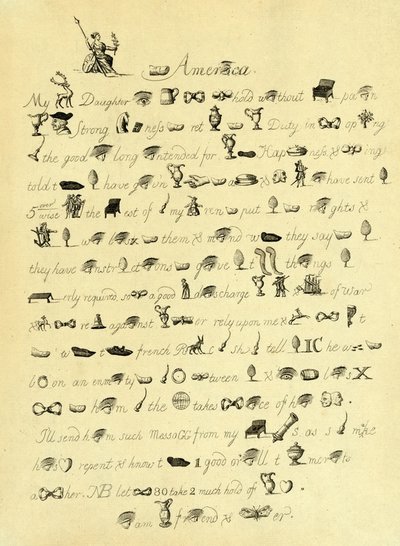
Thursday, March 9th - How did people in colonial times have fun? Writing letters using rebus'. Ask you child for help translating...
Wednesday, March 8th - The Second Continental Congress sends the Olive Branch Petition to King Charles III. Just in case that doesn't work, the colonists (at the same time) begin to build an army and navy. It didn't hurt naming George Washington as the Commander-in-Chief of the new Continental Army. The petition was too late and England had already issued a Proclamation of Rebellion. As your child can tell you... "It's too late to apologize".
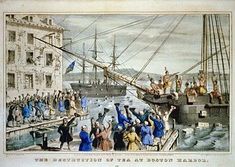
Tuesday, March 7th - Escalation... I think that is the best word to describe situation between the colonies and Parliament, that we are investigating. We looked at the Declaratory Act, Tea Act, the Boston Tea Party and Intolerable Acts. The students came up with options that each side could have taken at each step and the consequences. We finished with "the shot heard 'round the world". It looks like after Lexington and Concord, there is no turning back.
Monday, March 6th - Design and engineering is a part of the science curriculum and what says design and engineering more than 3D design? The students got the opportunity to use the software. I presented the tools on the board and the students followed along. Questions were asked and I think I was able to answer all of them. Overall, the students took it like a fish to water. Be prepared for your kid to ask you about getting the software. On that front... the software is free. Check out the "3D" tab for more info about 3D design and the software download.
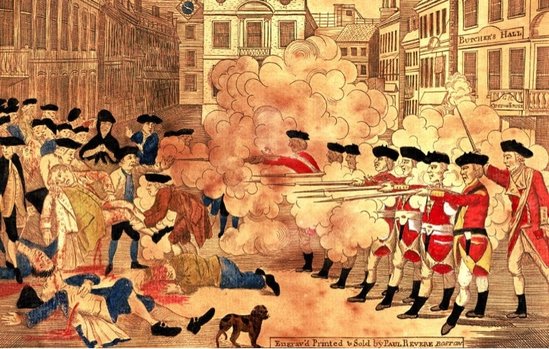
Friday, March 3rd - Taxes. That was the focus of todays class. The colonists are getting them from England and they don't like it! Some things never change. We picked up from the Proclamation of 1763 and got to the Boston Massacre. Can your child tell you about Paul Reveres famous depiction of the Boston Massacre? We discussed two famous quotes... James Otis' (from Massachusetts), "No taxation without representation" and the Patrick Henry's (from Virginia), "If this is treason (not paying taxes), make the most of it!" Ask your kid if they can tell you the common complaint of the colonists... no representation!
Wednesday and Thursday, March 1st and 2nd - We finished the week at the Proclamation of 1763. England is taking away the colonists rights by telling then not to settle the land won in the French and Indian War/Seven Year War (...that lasted nine years), leaving British soldiers in the colonies and having the colonial governors enforce even stricter laws from a government thousands of miles away. We are working towards the Revolution and the students are getting the full picture of why the colonists felt they were being treated unfairly. Next, we will look at the acts/taxes that are the final straw for the colonists.
Interesting tidbit I read to the kids and had them think through and explain the quote...
From A History of US... "Washington and 150 men tried to make them (French in the Ohio River Valley) go. They attacked a French scouting party and killed 10 Frenchmen. An English writer, Horace Walpole, said of the small battle, "The volley fired by a young Virginian in the backwoods of America set the world on fire." It was 1754; the French and Indian War had begun."
Fun fact... Two years after George Washington is defeated at Fort Necessity, he returns with English General Braddock and 1,800 English and Colonial troops. 900 French and Indian soldiers kill or wound two-thirds of the English. The French fire from behind trees and boulders, while the British try to fire in line formation. Braddock is killed. George Washington survives the battle with four bullet holes in his coat and two horses shot from under him. How things would have changed if one of those bullets was a few inches to the left or right. Washington has learned a valuable lesson in the defeat... a smaller force can defeat a larger and better trained one. He probably felt pretty lucky!
Interesting tidbit I read to the kids and had them think through and explain the quote...
From A History of US... "Washington and 150 men tried to make them (French in the Ohio River Valley) go. They attacked a French scouting party and killed 10 Frenchmen. An English writer, Horace Walpole, said of the small battle, "The volley fired by a young Virginian in the backwoods of America set the world on fire." It was 1754; the French and Indian War had begun."
Fun fact... Two years after George Washington is defeated at Fort Necessity, he returns with English General Braddock and 1,800 English and Colonial troops. 900 French and Indian soldiers kill or wound two-thirds of the English. The French fire from behind trees and boulders, while the British try to fire in line formation. Braddock is killed. George Washington survives the battle with four bullet holes in his coat and two horses shot from under him. How things would have changed if one of those bullets was a few inches to the left or right. Washington has learned a valuable lesson in the defeat... a smaller force can defeat a larger and better trained one. He probably felt pretty lucky!
Tuesday, February 28th - We were introduced to a 21 year old George Washington. Not the father of our country George Washington, but starting down the path that will get him there. Today's topic was the French and Indian War. By the end of tomorrow, ever student will be able to tell you that the war was not between the French and the Indians. We have lofty goals!
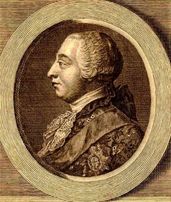
Monday, February 27th - As Tracy Chapman said, we began "Talkn' bout a Revolution". The American Revolution to be exact. Today was the introduction. We began by sharing what the students entered into our Google classroom about what they know and would like to know about the Revolution. The inaccuracies (no names) were opened to the class to see if they could clarify. I read the introduction from A History of US to the students. These are my two favorite parts...
"England's King George III kept a diary. This is what he wrote in it on July 4, 1776: "Nothing of importance happened today."
If King George had put his ear to the ground that day, he surely would have heard a rumble. The earth must have shaken. Because something very important did happen on July 4, 1776."
At the end of the section Hakim discusses how the Revolution will unleash an idea. "The idea is so daring that nothing like it has been heard in governments before. This is it: ordinary people are as worthwhile and valuable and competent as anyone, even as worthwhile as kings and queens. Can you imagine it! No one is better than anyone else. That idea will transform the world."
"England's King George III kept a diary. This is what he wrote in it on July 4, 1776: "Nothing of importance happened today."
If King George had put his ear to the ground that day, he surely would have heard a rumble. The earth must have shaken. Because something very important did happen on July 4, 1776."
At the end of the section Hakim discusses how the Revolution will unleash an idea. "The idea is so daring that nothing like it has been heard in governments before. This is it: ordinary people are as worthwhile and valuable and competent as anyone, even as worthwhile as kings and queens. Can you imagine it! No one is better than anyone else. That idea will transform the world."
Friday, January 27th - The 13 Colonies unit is official over... we had our end of unit test today. We will go over the questions on Monday. The kids did great work on their projects, notes and the test. We will be moving on to science... so check out the "Science" tab for the next up.
Thursday, January 26th - The kids have a better idea of where they stand for tomorrows test after an awesome round of The Kahoot!. Good luck to everyone on the test!
Wednesday, January 25th - Some students finished their projects... some still have work to do. Those that finished early could read any of the online books (hover over the "Social Studies" tab to see) or played colonial games (also found when hovering over the "Social Studies" tab). Tomorrow we will finish up the projects and review for our test on Fridays. The students should be reviewing their notebook each night.
Tuesday, January 24th - The students began their advertising project. They are making a brochure or poster to get other people in England/Europe to move to their colony.
Monday, January 23rd – We finished covering the Southern Colonies. That brings our 13 colonies to a close. The kids will be working on a brochure project over the next two days, a Kahoot! and final review. The test will be this Thursday or Friday (depending on how the projects work out).
Friday, January 20th - It is true, I was out today. I hate missing school, but we had a 3D professional development and I was asked to present to the cohort. I love 3D design! The kids read a few different things today and took notes on their own. Together, we will discuss the readings and see how they did with note taking. What was the most interesting thing they read... that Niagara Falls has been turned off and can be again.
Thursday, January 19th – The voyage was made, the settlements founded and the settlers made it through the first winter… or I should say… a small percentage are still alive. The mortality rate was 70%-95%. Sounds unbelievable, but 4/5 settlers in the first few years do not make it and half of the Pilgrims are dead after their first winter. It was an interesting experiment for the kids and they made some great connections. The best was relating Maryland to a second chance at the game. If they could play again they would make lots of changes. This is what Lord Baltimore did when he puts together Maryland. He knows all the mistakes made in Jamestown and will have a very successful start.
Thursday, January 18th – Say good-bye to your child, because they are off to start their own colony. The kids began their colonization project today. They had to pick their ship, captain, location, passengers and goods. A lot is a guess, based on what they think they will get to the New World (it is 1607). Just like the original groups that headed to the New World, they didn’t have a perfect understanding of what waited for them or what they really needed. It will be interesting to see what happens when their voyage begins tomorrow.
Tuesday, January 17, 2017 – We headed south from the Middle Atlantic Colonies. The students learned the who, how and when of the founding of the Southern Colonies… Catholics (Maryland) to debtor prisoners (Georgia)… it was a full day!
Friday, January 13, 2017 – We finished are work on the Middle Atlantic Colonies, by talking about the backcountry. This was the frontier. The Great Wagon Road brought settlers to the other side of fall line into the piedmont (foot of the mountains). The road was original an Indian trail, but over time was enlarged to the point that animals and carts could pass. Wider, but not better. Daniel Boone and his family leave Pennsylvania and spend a year traveling on the road to get to the Yadkin Valley in North Carolina. The kids also got to see what a home on the frontier looked like… log cabin, one room, no windows, leaves on the floor to sleep on… the perfect weekend get-a-way!!!
Thursday, January 12th - What does pie and Pennsylvania have in common? William Penn waned the townships to 5,000 acres divided amongst 10 families. The land should be in the shape of a circle and divided. Each family gets a “slice” of the pie and all the homes built at the tips. We also learned about Penn’s idea for laying out Philadelphia (grid and parks) and Philly’s most famous resident… Ben Franklin.
|
Wednesday, January 11th – We reviewed the Middle Atlantic Colonies origins and compared their market towns to the villages of New England. A little map work rounded out the day. Philadelphia, The Great Wagon Road and the life in the backcountry coming up.
Our side work today was how New York City went from not much to the biggest city in the country (Erie Canal). We looked at some pictures that showed NYC as a shipping center (see picture from the 30’s). Almost all the piers and ships are gone, but a few remain. Some kids brought up the High Line in the city and we talked about why that was built there and why it goes through some buildings (delivered bulk goods right into the building). There used to be a lot of production in the city. |
Tuesday, January 10th - Why Is New Jersey called New Jersey? Carteret and Berkley are given the land west of New York that was taken from the Dutch… by James… the kings brother… you can call him the Duke of York. Carteret lived on the Isle of Jersey back in England. How about Pennsylvania? Who is this Penn (not who you think) and what is a Sylvania? William Penn, the founder, wanted to call the colony Sylvania. That means woods. King Charles II suggested adding the “Penn” for Williams dad (since the land was traded to William for the enormous debt that the king had owed Williams father).
Monday, January 9th – We started the day with a quiz on the New England Colonies. I told the kids not to worry… it is only a quiz. The weight is only 10 points (the final test -weighted 100 points, notebooks – weighted 25 points…).
We moved onto the Middle Atlantic Colonies (New York, New Jersey, Pennsylvania and Delaware). We talked about what was happening in England in the late 1640’s… the English Civil War. The Puritans win and King Charles I losses… his head. Oliver Cromwell takes over and it is not a fun time (he is a Puritan). Eventually, he passes away and his son takes over, but doesn’t do well. The Restoration occurs and King Charles II takes the throne back. Why does that matter? The rest of the colonies (not Georgia) are all tied to those that supported the king when he wasn’t the king.
The Netherlands (Holland or the Dutch) settled the land that Henry Hudson claimed years earlier along the Hudson River. Things are not going well, but Peter Stuyvesant gets the place under control. New Netherlands is open to anyone. All Europeans are welcome and all religions are tolerated. Ask your kids about Peter Stuyvesant’s nickname.
Across the river at the same time, the Swedish have established trading posts in what is today NJ and DE. Ask you kids about the Johan Printz. He was a big dude… ask you kids about his nickname (he was 400 lbs. and 7 feet tall). Stuyvesant defeats the Swedes and takes their land. The English do not like this, because they cannot expand west from New England. They do not like the New England Colonies and Southern colonies divided. What to do…
King Charles II sends his brother to fight the Dutch. If he can get rid of them, he can have the land as his colony. With English ships and soldiers, the king’s brother, James, reaches New Amsterdam and the Dutch just surrender. James official title… the Duke of York.
We moved onto the Middle Atlantic Colonies (New York, New Jersey, Pennsylvania and Delaware). We talked about what was happening in England in the late 1640’s… the English Civil War. The Puritans win and King Charles I losses… his head. Oliver Cromwell takes over and it is not a fun time (he is a Puritan). Eventually, he passes away and his son takes over, but doesn’t do well. The Restoration occurs and King Charles II takes the throne back. Why does that matter? The rest of the colonies (not Georgia) are all tied to those that supported the king when he wasn’t the king.
The Netherlands (Holland or the Dutch) settled the land that Henry Hudson claimed years earlier along the Hudson River. Things are not going well, but Peter Stuyvesant gets the place under control. New Netherlands is open to anyone. All Europeans are welcome and all religions are tolerated. Ask your kids about Peter Stuyvesant’s nickname.
Across the river at the same time, the Swedish have established trading posts in what is today NJ and DE. Ask you kids about the Johan Printz. He was a big dude… ask you kids about his nickname (he was 400 lbs. and 7 feet tall). Stuyvesant defeats the Swedes and takes their land. The English do not like this, because they cannot expand west from New England. They do not like the New England Colonies and Southern colonies divided. What to do…
King Charles II sends his brother to fight the Dutch. If he can get rid of them, he can have the land as his colony. With English ships and soldiers, the king’s brother, James, reaches New Amsterdam and the Dutch just surrender. James official title… the Duke of York.
Friday, January 6th - The students have completed the overview of the New England Colonies. We have some more work to do, but they should be able to tell you most of the info below...
* The four colonies - Massachusetts, Rhode Island, Connecticut and New Hampshire
* Important people for each colony John Endecott & John Winthrop (MA), Anne Hutchinson & Roger Williams (RI), David Thomson
(NH) and Thomas Hooker (CT)
* The differences of the colonies - geography, religion (tolerance), government and climate... to name a few
We also learned about the economies the New England economies (whales, fish, ship building, timber and trading - Triangular Trade).
* The four colonies - Massachusetts, Rhode Island, Connecticut and New Hampshire
* Important people for each colony John Endecott & John Winthrop (MA), Anne Hutchinson & Roger Williams (RI), David Thomson
(NH) and Thomas Hooker (CT)
* The differences of the colonies - geography, religion (tolerance), government and climate... to name a few
We also learned about the economies the New England economies (whales, fish, ship building, timber and trading - Triangular Trade).
Thursday, January 5th – What happens you question the Puritan faith? Ask Roger Williams, or Anne Hutchinson… spoiler alert… it is not good. Roger Williams had to make a quick get away after his trial (he was talking about freedom of religion and separation of church and state) and headed south from the Massachusetts Bay Colony. With a lot of help from the native people, he is able to survive and start a settlement… Providence. It will become the colony of Rhode Island. Anne Hutchinson also caused the Puritans concern, when she questioned the ministers and their teachings. She also held services in her house. She was put on trial (sedition) and surprisingly, she was found guilty by the judges who were Puritan ministers. She too flees south and starts a settlement that will become part of Rhode Island.
Wednesday, January 4th - We read the diary of Christopher Sears (made up, but based on real events and people). It gave the students an insight into what life for a 12 year old was like in Plymouth Colony. Plymouth Colony and the Pilgrims (Separatists) has already been discussed, so we focused on the Massachusetts Bay Colony. The students were surprised that 20,000 Puritans had come to the colony. Hopefully, they have a good understanding of the differences between the two groups. We also talked about the layout of Puritan Villages (church at the center and a common area with buildings/shops around the outside).
Probably the most talked about item today… all the people named John.
Probably the most talked about item today… all the people named John.
- John Smith
- Explored and named the area of the colony years earlier
- One of the founders of Jamestown
- Chief Powhatan captured him and was going to cut off his head until Pocahontas had her father spare Smith’s life. Pocahontas goes on to marry…
- John Rolfe
- Brought tobacco to Jamestown. That made people rich!
- John Endecott
- 1628 - brought the first Puritans to Massachusetts Bay Colony
- John Winthrop
- 1630 - brought the second larger group of Puritans
- Govenour of the colony and president of the confederation of New England people
Tuesday, January 3rd - Welcome back! We are starting the New Year with a new topic in social studies... the 13 Colonies. Class began with a bit of catch up... what the kids did over break and any news they heard about... Mariah Carey, Carrie Fisher and George Michael were definitely high on the list. We also heard about a set of twins that were born... a year apart! We discussed what we knew about the 13 colonies, looked at some maps, and thought about why we were going to study the colonies in three sections... New England, Mid Atlantic and Southern (geography, climate, religion-tolerence). We read a book on the ChromeBooks called The Dreadful, Smelly Colonies: The Disgusting Details About Life in the Colonies. It paints a lovely picture of what life was like in the colonies (spoiler alert: not good). You can check out the book for yourself, it is under the "Social Studies" tab "books". When the kids were done, they had to research a colonial job (randomly handed out) to explain to everyone at the end of class. If there was any time left, the kids could play of the 13 Colonies Games (this is also under the "Social Studies" tab).
Monday, November 21st - We will have our end of unit assessment for the Age of Exploration this Wednesday. I know that we have a shortened day, but the test will be shorter also. I would rather get this out of the way and let the kids enjoy the Thanksgiving break. The test will be open notebook. I am doing this so they can understand the importance of taking good notes. No memorizing. Just the picture stuff.
US History... "Almost there... stay on target" - Red Leader, Star Wars.
That is our class. We are not into US History yet, but just about ready for colonization. We have been learning about the Age of Exploration. Europe has pulled them out of the Dark Ages and begun the period known as the Renaissance (French for rebirth). The Europeans are trading with Africa and Asia and the Middle East is the key to it all. Life is good (not compared to us, but to what was happening before).
But all good things come to an end... The Turks took control on Constantinople and closed the Silk Road (not really a road). This cut the Europeans off from the spices, silks, perfume, jewels... and they didn't want to live without them. So, they decide to sail to Asia. Only one small problem... they don't have the ability to do this. Their ships are not good enough, navigational equipment barely exists and what does hasn't been updated in 1,000 years, maps are sketchy at best and incomplete at worst (like is it possible to sail around Africa?). Prince Henry of Portugal sets up a school of navigation that will bring together shipbuilders, sailors and cartographers (map makers). The reward to be the first to find a sea route is enormous and within the short time of 50 years (time is relative - haha), Vasco Da Gama successful sails to Asia and back. Sure, he loses a few ships and two-thirds of his crew die, but what a triumph!!!
The rest of Europe is jealous the Portuguese and will send out ships to find another way to Asia. This leads us to Christopher Columbus who arrives in what will become the Bahamas. After 3 more trips back, he will die believing he found Asia, but he just hadn't gotten to the parts they already know. Other European explorers will follow and eventually their monarchs will decide that instead of taking valuables and people, they will colonize these new continents... the America's (thank you Amerigo Vespucci for the name).
That is our class. We are not into US History yet, but just about ready for colonization. We have been learning about the Age of Exploration. Europe has pulled them out of the Dark Ages and begun the period known as the Renaissance (French for rebirth). The Europeans are trading with Africa and Asia and the Middle East is the key to it all. Life is good (not compared to us, but to what was happening before).
But all good things come to an end... The Turks took control on Constantinople and closed the Silk Road (not really a road). This cut the Europeans off from the spices, silks, perfume, jewels... and they didn't want to live without them. So, they decide to sail to Asia. Only one small problem... they don't have the ability to do this. Their ships are not good enough, navigational equipment barely exists and what does hasn't been updated in 1,000 years, maps are sketchy at best and incomplete at worst (like is it possible to sail around Africa?). Prince Henry of Portugal sets up a school of navigation that will bring together shipbuilders, sailors and cartographers (map makers). The reward to be the first to find a sea route is enormous and within the short time of 50 years (time is relative - haha), Vasco Da Gama successful sails to Asia and back. Sure, he loses a few ships and two-thirds of his crew die, but what a triumph!!!
The rest of Europe is jealous the Portuguese and will send out ships to find another way to Asia. This leads us to Christopher Columbus who arrives in what will become the Bahamas. After 3 more trips back, he will die believing he found Asia, but he just hadn't gotten to the parts they already know. Other European explorers will follow and eventually their monarchs will decide that instead of taking valuables and people, they will colonize these new continents... the America's (thank you Amerigo Vespucci for the name).
US History... here we come! However, we have to go back a little farther to get a better understanding. When I say "a little", I mean 20,000-30,000 years ago. We began the year by looking at how the original people came to the North and South America and how they lived. To do that... we have to really start in central Africa. We finished this unit with the students researching a Native American tribe. We will pick up next time closer to the present... 1400's Europe. I promise, we will get to US history and it will make so much more sense...

